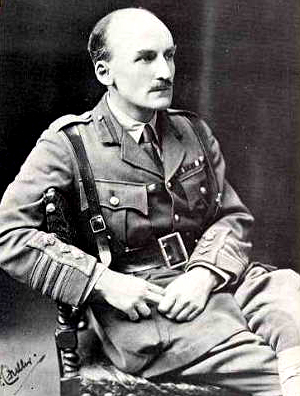| |
||||||||||||||||||
| |
|
 |
||||||||||||||||
| |
||||||||||||||||||
|
|
|
|||||||||||||||||
| |
||||||||||||||||||
|
|
||||||||||||||||||
| |
||||||||||||||||||
|
|
|
|||||||||||||||||
| |
||||||||||||||||||
| |
|
|
||||||||||||||||
| |
||||||||||||||||||
| |
|
|
||||||||||||||||
| |
||||||||||||||||||
| |
|
|
||||||||||||||||
| |
||||||||||||||||||
|
|
|
|||||||||||||||||
| |
||||||||||||||||||
| |
|
 |
||||||||||||||||
| |
||||||||||||||||||
|
|
|
|||||||||||||||||
| |
||||||||||||||||||
|
|
|
|||||||||||||||||
| |
||||||||||||||||||
|
|
|
|||||||||||||||||
| |
||||||||||||||||||
| |
|
|
||||||||||||||||
| |
||||||||||||||||||
|
|
|
|||||||||||||||||
| |
||||||||||||||||||
|
|
|
|||||||||||||||||
| |
||||||||||||||||||
|
|
|
|||||||||||||||||
| |
||||||||||||||||||
| |
|
|
|
|
|
|
|
|
|
|
|
|
|
|
|
|
|
|
VOXX: MAGICKAL BIOGRAPHIES - GENERAL J.F.C. FULLER
MYSTIC SOLDIER OF THE O.T.O

Major-General J.F.C. (John Frederick Charles) Fuller (1878-1966)
John Frederick Charles Fuller was born in Chichester, Sussex, England on
September 1st, 1878. He is considered by far one of the most prominent British theorists who emerged after the war was General J.F.C. Fuller. Fuller was controversial in his lifetime (and has remained so). Fuller left behind important memoirs; and has been the subject of major biographies.
Fuller came from a solidly middle-class background. He was the son of a churchman. His mother was French, although she had been raised in Germany. Her son was known as Fritz until the Great War made it advisable to seek a new nickname, and his wife Sonia was German. His new sobriquet was Boney, descriptive of both his physical appearance and his Napoleonic stature, knowledge, and behavior. His biographers have made much of his small size and its impact on his sometimes bellicose personality.
Intelligent and highly literate, Fuller entered Sandhurst in 1897, was commissioned in 1898, and was immediately posted to Ireland. In late 1899 his regiment left for South Africa and arrived at Capetown at the hour of one of Britain's major military embarrassments.
Fuller had been in the country long enough to determine that the British army had no idea what it was doing when he was struck down by appendicitis. He was evacuated to England but returned in time to participate in the last phases of the war. After some desultory regimental combat duty, he wangled a more exciting assignment as chief of a largely native reconnaissance company. This was an exciting, educational, and dangerous job (since the Boers put a death sentence on white officers leading black troops). The independence and intensity of this position made it a formative experience for young Fuller.
His next formative experience soon followed. He was posted to India, where his combat experience was slight but he took the opportunity to delve into Hindu mysticism. Fuller also became acquainted with the English mystic Aleister Crowley, who--aside from his frankly bizarre influence on Fuller's private life--introduced Fuller to Maude and thence to Clausewitz. Although the latter connection proved fruitful, Fuller's mystical interests became a source of embarassment for both Fuller and his acolytes: J.E. Edmonds (as bitter a critic of Fuller as of Clausewitz) was brutally sarcastic in his reviews of Fuller's work, assailing him not onlyfor the shallowness of his attempts at universal military theory but also for his unfortunate essays into mysticism. In particular, Fuller's obsession with the number 3 brought down a devastating barrage. To Fuller's trinities of "earth, water, and air" and "men, women, and children," Edmonds suggested adding "coat, trousers, and boots" and "knife, fork, and spoon." (Curiously, Fuller seems never to have picked up on the mystical significance of a number of three-part arguments and trinities in On War.)Posted back to England in 1906, Fuller served as the adjutant (and only regular officer) of a volunteer regiment. This assignment was important in a couple of ways: first because it gave him experience with the sort of citizen soldiers who would fight the coming world wars and second because it gave him time to do--for the first time in his military career--some serious military reading. He entered Camberley in January 1914 and was saved from the initial slaughter of junior BEF officers by his subsequent assignment to the general staff.
During this same period, Fuller began to write seriously on military topics. (He had already published some works on mysticism.) These articles generally concerned troop training and tactics. He also began developing his ideas on the "Principles of War," that is, the objective, mass, offensive, and so forth (the list went through several evolutions). As familiar as that sort of list may seem to soldiers today, it originated (insofar as any such idea "originates") with Fuller.
As a corps staff officer in France by 1915, Fuller soon became involved in setting up and running a series of highly successful rear-area courses for frontline officers, many of them quite senior to Fuller. Thus began his habit of lecturing to his superiors.
In mid-1916, Fuller was introduced to the weapon with which his name is usually linked, the tank, the development of which was entirely out of his hands. Its tactical employment, however, bore his stamp. By December he was a member of what became the Tank Corps. He was involved in planning most of the major tank attacks, particularly those on Cambrai in November 1917 and on Amiens in 1918. Functioning always as a staff officer rather than a commander, Fuller was known as the "brain of the Tank Corps," a job that made his reputation.
Fuller's most famous scheme was one that was never executed, "Plan 1919." Developed in May of 1918, this plan has been hailed as the precursor of the blitzkrieg. It was based on the ideas of massive armored attacks, tactical air support, and the aim not of physically destroying the enemy but of paralyzing his command system.
After the war, Fuller (a colonel in 1919) held a series of interesting and important jobs. He was chief instructor at Camberley from 1923 to 1926, then military assistant to the chief of the Imperial General Staff, and then commander of the Experimental Mechanized Force. Unfortunately, he quit the last job in a huff, proceeded to antagonize the army's leadership on a number of often peripheral issues, published several controversial books, and was retired in 1933 as a major-general. Thereafter he made his way primarily as a military journalist. He also fell in with Sir Oswald Mosley, the leader of British fascism, a serious error that damaged his relationship with Liddell Hart and probably precluded (if his feud with the military leadership had not already) his active employment in the war of 1939-45.
It would be impossible to summarize Fuller's military thinking here, and the interested reader should consult A.J. Trythall's and Brian Holden Reid's capable biographies. (34) In regard to his views on Clausewitz, Fuller appreciated the philosophy of On War, albeit in a creative, erratic, and typically idiosyncratic manner. It is questionable whether Fuller's early outlook on war was directly shaped by it, although he was a member of the prewar generation of thinkers and he undoubtedly absorbed a great deal indirectly through other reading or through the influence of F.N. Maude, who introduced him to On War around 1906. For all his enthusiasm for Clausewitz, however, Maude was one of those who rejected key aspects of his argument.
According to many biographers, Major General John Frederick Charles Fuller was, and remains, the most brilliant, most stimulating, and most arrogant and aggravating military writer of the twentieth century. Fuller, an infantryman, first saw modern combat in the Boer War. During World War I, he was the GSO1 of the Tank Corps. Thereafter, he was one of the leading theorists of armored warfare in the 1920s and 1930s and wrote forty-five books on warfare, theoretical tracts, histories, and studies of generalship during an extraordinarily productive life as a molder of opinion on military affairs.
Fuller's books, like their author, could be exasperating, opinionated, and bright-all at the same time. Fuller retired as a major general but was largely unemployed after turning down command of the experimental armored force in the late 1920s over a matter that to him involved principle but to everyone else was of little consequence (having to do with ancillary administrative duties he was expected to accomplish). In the late 1930s, he became a supporter and adviser to Oswald Mosley's British Union of Fascists and only narrowly escaped internment when war broke out.
Fuller's book, The Foundations of the Science of War is a compilation of material presented by Fuller when he was chief instructor, Staff College, Camberley. Dating from 1926, it is the culmination of his theoretical writings and an early attempt to fit mechanization into the fabric of European warfare. In this work, Fuller presents a comprehensive theory of war. While it does not reach the heights to which Fuller aspired, it retains the ability to stimulate and provoke thought seventy years after it first appeared. Fuller died in Falmouth, Cornwall England on February 10th, 1966.
Two excellent intellectual biographies of Fuller are available today: Anthony John Trythall, "Boney" Fuller Soldier, Strategist, and Miter 1898-1966, and Brian Holden Reid, J.F.C. Fuller. Military Thinker. In addition, many of Fuller's books remain in print in commercial editions.
SCHEDULE A PSYCHIC SEANCE BY PHONE
CALL VOXX NOW AT (323) 782-0222!Please e-mail or call Voxx's office directly to schedule the most incredible Psychic reading of your life!
Please join our Mailing List for current updates on this and other unique Voxx services.Customer Service Hotline: If you experience any difficulty in using PayPal, or in using the site, please call: 323-467-4570 to speak with our personal Site Representative. You may also contact the Voxx Site Webmaster.
All content on this website is the sole intellectual property of Voxx the Psychic, unless otherwise stated, and is intended for this site only. Copying of any part of this site is strictly prohibited. This site and it's contents are protected under International Copyright Law. The material on this site is intended for personal educational use only. Do not post any of this information on your webpage. All rights reserved. Voxx the Psychic, Copyright 2003-2005. Voxx Metamedia, Inc.Site Design and Management by Artillery Unit
